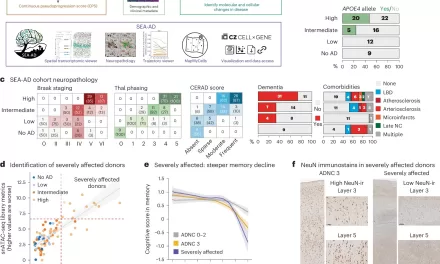Deep meditation often leads to experiences that transcend the ordinary flow of time, with practitioners describing them as “timeless” or “pure consciousness” states. During these moments, individuals feel fully alert but report no perception of past or future, creating an intriguing paradox. If one is conscious and aware, should they not also be aware of the passage of time? Can a meditative state truly be devoid of any temporal dimension?
In an article published in The Philosophical Quarterly, Professor Akiko Frischhut from Sophia University in Japan delves into this question, exploring the nature of time in deep meditative experiences. Frischhut’s research offers new insights into the relationship between consciousness and time, presenting a potential resolution to this perplexing issue.
Understanding Timeless Meditation
Frischhut’s paper aims to provide a conceptual framework for understanding deep meditative states, focusing on the experience of time—or the lack thereof—during these altered states of consciousness. One central question posed by the researcher is whether it’s possible to have an experience that is completely timeless, without any temporal features at all. This question touches upon a paradox that arises when meditation practitioners describe their experiences as both “timeless” and “ongoing.”
The idea of something being “ongoing” implies duration, contradicting the notion of timelessness. This tension is a key focus of Frischhut’s work, which argues that deep meditative states inherently involve at least a minimal sense of time, specifically the quality of duration.
Timeless Meditation: No Beginning or End
To navigate this contradiction, Frischhut introduces the concept of the “Extended Now Interpretation” (ENI). This theory resolves the ambiguity in the use of the word “timeless.” While some describe timelessness as the complete absence of any temporal characteristics, others use it to refer to a state where time is experienced without any specific temporal markers like change, succession, or a clear beginning or end.
Frischhut suggests that deep meditative states can be understood as existing within an “extended present.” Meditators experience no discernible progression of moments or temporal structure, but they remain immersed in an ongoing experience that has duration, even if that duration cannot be easily measured.
In this view, “timelessness” doesn’t mean the complete absence of time, but rather the lack of any specific temporal organization within the experience. Meditation practitioners, therefore, are aware of an ongoing flow of time without being able to perceive its typical markers of change and progression.
Alertness and Duration in Deep Meditation
A significant factor in these experiences is the role of alertness during deep meditation. Frischhut notes that this alertness—often described as a poised, sustained state of attention—allows meditators to maintain a subtle awareness of time’s passage, even when not consciously tracking moments.
The continuity of alertness, even without a clear memory of prior moments, fosters a sense of ongoing presence. Just as one can perceive the difference between two knocks on a door, even without actively recalling the first, the flow of attention in meditation provides an implicit sense of duration. This ongoing attentiveness forms the basis for the experience of time during meditation, despite the lack of explicit temporal markers.
The Role of Memory in Timelessness
Frischhut also tackles the challenge posed by meditators’ reports of memory loss during deep meditative states. If there is no memory, how can one sense the passage of time? Frischhut argues that the awareness embedded in the act of alertness itself carries a distinct phenomenological quality. Like the continuity of sound between successive knocks, the flow of attention in meditation allows practitioners to experience a sense of time without needing to recall previous moments consciously.
This understanding challenges traditional views of how time operates in the human mind and suggests that even without memory or conventional awareness of time, an implicit sense of duration remains.
Why It Matters
Frischhut’s work brings new clarity to the long-standing mystery of how time is perceived during deep meditative states. By addressing the paradoxes inherent in these experiences, her research sheds light on reports that have emerged across cultures and centuries, deepening our understanding of human consciousness.
As Frischhut points out, states of consciousness such as deep meditation, dreams, and psychedelic experiences remain largely unexplored within contemporary philosophy. Understanding the nuances of time perception in these altered states, she argues, could offer profound insights into human cognition and the workings of the mind.
By examining how time is experienced across both ordinary and extraordinary states of consciousness, Frischhut’s study invites further exploration into the nature of time itself—and how it shapes the way we experience reality.











